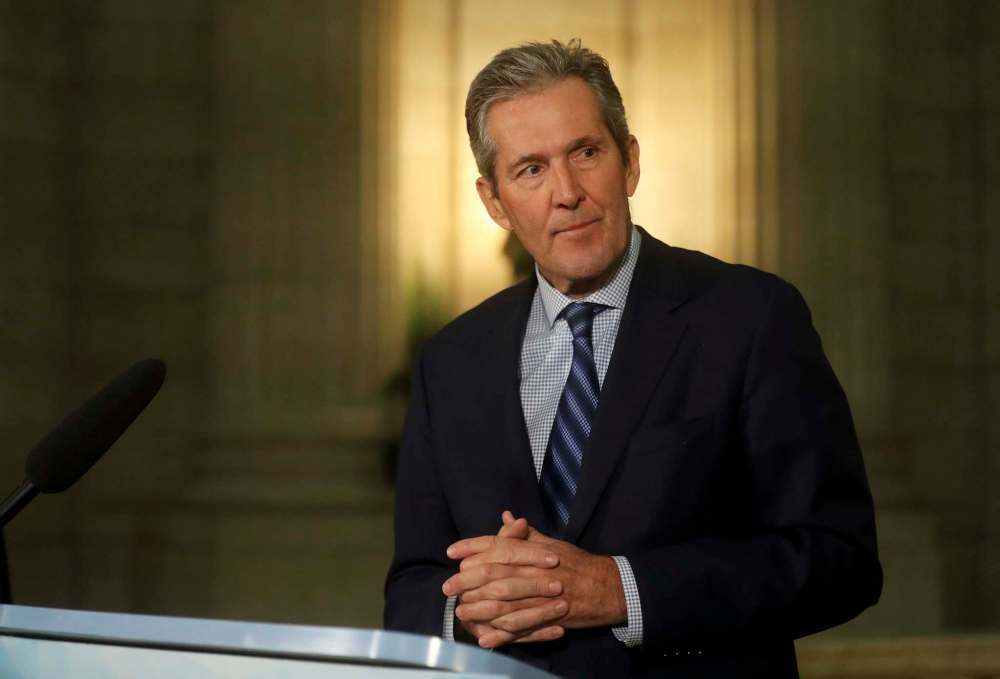Quebec premier’s posturing before federal election leaves Pallister cold
Advertisement
Read this article for free:
or
Already have an account? Log in here »
To continue reading, please subscribe:
Monthly Digital Subscription
$0 for the first 4 weeks*
- Enjoy unlimited reading on winnipegfreepress.com
- Read the E-Edition, our digital replica newspaper
- Access News Break, our award-winning app
- Play interactive puzzles
*No charge for 4 weeks then price increases to the regular rate of $19.00 plus GST every four weeks. Offer available to new and qualified returning subscribers only. Cancel any time.
Monthly Digital Subscription
$4.75/week*
- Enjoy unlimited reading on winnipegfreepress.com
- Read the E-Edition, our digital replica newspaper
- Access News Break, our award-winning app
- Play interactive puzzles
*Billed as $19 plus GST every four weeks. Cancel any time.
To continue reading, please subscribe:
Add Free Press access to your Brandon Sun subscription for only an additional
$1 for the first 4 weeks*
*Your next subscription payment will increase by $1.00 and you will be charged $16.99 plus GST for four weeks. After four weeks, your payment will increase to $23.99 plus GST every four weeks.
Read unlimited articles for free today:
or
Already have an account? Log in here »
Hey there, time traveller!
This article was published 21/01/2019 (2520 days ago), so information in it may no longer be current.
Brian Pallister says he takes exception to Quebec Premier François Legault setting himself up as a kingmaker in the looming national election by issuing a list of demands to federal leaders.
At a news conference Monday, the Manitoba premier decried what he called a return to “the old style of brokerage politics, preferential politics in Canada.”
He said he was also disappointed that Prime Minister Justin Trudeau seemed willing to play along with the Quebec strategy.

Quebec is expected to be a key battleground in the Oct. 21 election as federal Liberal support has fallen in other parts of Canada.
On Thursday, Legault laid out a series of demands that he expects federal party leaders to address as they campaign for votes in his province during the fall election. Included were funding for public transit projects in Montreal and Quebec, a $300-million payment to compensate for costs in dealing with asylum seekers, and handing the province more power in the selection of immigrants.
Pallister objected to the Quebec leader’s tactics.
“He put out a list of demands and expressed concern that the federal government make sure they buy Quebec votes in the next federal election,” the premier told reporters.
The fact that Trudeau would consider Quebec’s demands “showed a complete lack of respect not only for Manitobans but for the rest of Canada,” Pallister said.
He said when Manitoba puts forward positions, it always considers the impact on the whole country, not just part of it.
“As premier of Manitoba, of course, I advocate for the Manitoba position, but Manitobans would expect me to advocate on issues that benefit the country as a whole, not exclusively this area at the expense of some other area.”

Quebec has taken positions that run counter to the interests of the rest of the country on some issues, Pallister said. He said Quebec’s climate change proposal is “less stringent” than what Ottawa has demanded of Manitoba and other provinces.
Quebec has said it is willing to block a national pipeline that would give oil-producing provinces a badly needed outlet for their product. And it has advocated reduced immigration when the country as a whole needs more people to fill vacant jobs, he said.
larry.kusch@freepress.mb.ca

Our newsroom depends on a growing audience of readers to power our journalism. If you are not a paid reader, please consider becoming a subscriber.
Our newsroom depends on its audience of readers to power our journalism. Thank you for your support.


